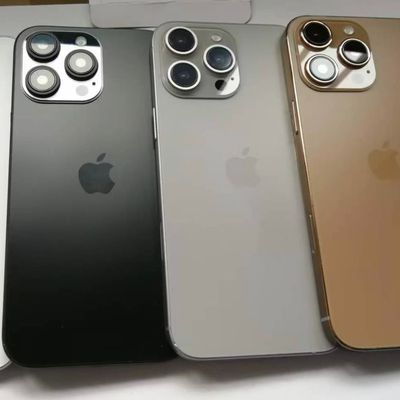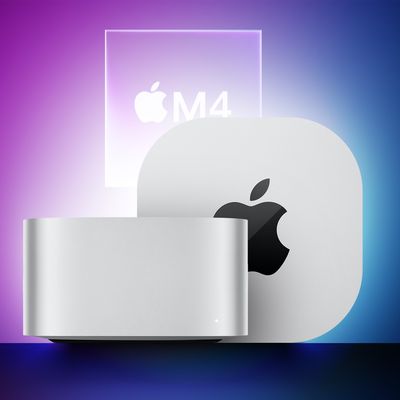Apple Says iPad Air Performance Details Are Accurate Despite 9-Core GPU Mistake
Though Apple mistakenly listed the M2 chip in the iPad Air as having a 10-core GPU instead of a 9-core GPU, the performance claims that it shared during the iPad Air launch and in marketing materials are accurate.

In a statement provided to 9to5Mac, Apple said that the details it shared on the iPad Air's performance were always based on a 9-core GPU.
We are updating Apple.com to correct the core count for the M2 iPad Air. All performance claims for the M2 iPad Air are accurate and based on a 9-core GPU.
Apple's website says that the M2 chip is "nearly 50 percent faster than the previous generation," and that it specifically has "25 percent faster graphics."
Apple recently updated its technical specifications website for the M2 iPad Air to state that the device has a 9-core GPU. Prior to the update, it listed a 10-core GPU. The prior-generation iPad Pro had a 10-core GPU, so it is a surprise that the iPad Air version is limited to a 9-core GPU.
Other M2 chip specifications have not changed. The iPad Air has an 8-core CPU with four performance cores and four efficiency cores, along with 8GB RAM and a 16-core Neural Engine.
Because it took Apple several days to correct the chip error on its website, some users may have purchased the iPad Air believing it had a 10-core GPU. The two week return period has expired for those who bought on launch day, but customers would have a good argument for a return exception.
Popular Stories
Leaker Sonny Dickson is back today with a new dummy unit image showing all four iPhone 16 Pro color variants, including the rose gold or "bronze" unit that replaces Blue Titanium in the existing iPhone 15 Pro models. The iPhone 16 Pro models are expected to come in black, white or silver, gray or "Natural Titanium," and a rose or rose gold color replacing Blue Titanium, according to Apple...
Multiple rumors have suggested that the iPhone 16 models are going to have an all-new button that's designed to make it easier to capture photos when the devices are held in landscape mode. Apple calls the button the Capture Button internally, and it is going to be one of the most advanced buttons that's been introduced to date with support for multiple gestures and the ability to respond to ...
Apple typically releases its new iPhone series in the fall, and a possible September 10 announcement date has been floated this year, which means we are just one month away from the launch of the iPhone 16. Like the iPhone 15 series, this year's lineup is expected to stick with four models – iPhone 16, iPhone 16 Plus, iPhone 16 Pro, and iPhone 16 Pro Max – although there are plenty of design...
Apple's iPhone 16 series is expected to debut in September 2024. This release follows Apple's trend of introducing new iPhone models annually in the fall. While the exact date has yet to be officially confirmed, the day of Tuesday, September 10 has been rumored as a possible announcement date, and September has traditionally been the month when Apple unveils its latest smartphone innovations. ...
Apple is moving forward with its project to develop a tabletop robotic device, according to Bloomberg's Mark Gurman. Subscribe to the MacRumors YouTube channel for more videos. The device would feature a large iPad-like display mounted on a "thin robotic arm" that would allow the display to tilt and up and down and rotate a full 360º, and it would serve as a "smart home command center," a...
It's almost September, but Apple still has multiple new product launches planned for 2024. New iPhone 16 models and Apple Watches are coming in September, and we're also going to get at least three Mac updates with M4 chips this year, according to rumors. Here's what's on the horizon. MacBook Pro Apple plans to refresh both the 14-inch and 16-inch MacBook Pro models, adding M4 chips. The ...
T-Mobile was fined $60 million by the Committee on Foreign Investment in the US (CFIUS) for negligence surrounding data breaches, reports Reuters. CFIUS penalized T-Mobile for failing to prevent or disclose unauthorized access to sensitive customer data. When T-Mobile merged with Sprint, it signed a national security agreement with CFIUS, which is what led to the fine earlier this year....





















